|
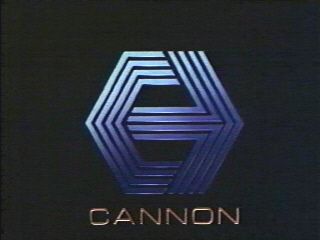
Cannon: What You Didn't Know
(An exclusive interview!)
Cannon Films - though it's long gone, its
legend still lives on today. Any dyed-in-the-wool B movie fan will have
at some time will have learned about some wacky happenings that came
out of the company and the movies it made. Even those not familiar with
the company name, or the names of Menahem Golan and Yoram Globus, will
almost certainly know of a number of their movies. There were Chuck
Norris movies like Firewalker and Hero And The
Terror, Charles Bronson movies like 10 To Midnight
and Murphy's Law, and assorted schlock like Revenge
Of The Ninja, King Solomon's Mines, Salsa, Hercules, New Year's Evil,
and many many more.
There have been a number of articles
written about Cannon and Golan/Globus (newbies and veterans of Cannon
films will find
this article especially interesting.) Upon reading them, and
watching the movies made by Cannon, it is likely that one will wonder
just what was going on behind those closed doors. What was it like
working there? As a stroke of good luck, I was able to find out myself
by interviewing former Cannon employee Jim Bertges, who I previously
interviewed about Demonwarp
and FVI. Jim was generous enough to take the
time to tell us what we've all wanted to know for years:
GREYWIZARD: How did you get
hired by Cannon?
JIM BERTGES: I answered an ad in the trades. I had
experience in Co-Op Advertising and they needed someone in that
department. As it turned out, the head of Co-op was someone I had
encountered over the years and knew me from our phone conversations. I
was fortunate to be in the right place at the right time and have a
little bit of a connection.
G: What were your impressions of the company
before you started working for them?
JB: For me Cannon was a step up from FVI. I was
familiar with them through their many extravagant ads in the trades.
They always seemed 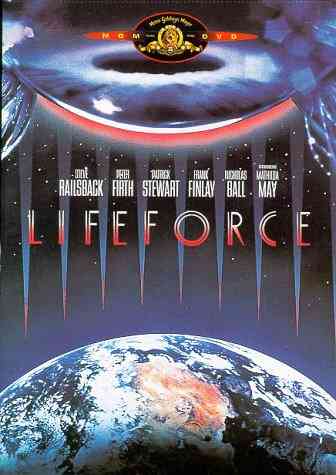 to have
something going and their movies were far more impressive than the
product at Film Ventures. They had real stars and comparatively big
budgets. It seemed like they were an up and coming studio at the time. to have
something going and their movies were far more impressive than the
product at Film Ventures. They had real stars and comparatively big
budgets. It seemed like they were an up and coming studio at the time.
G: How about once you'd been working there for
several months?
JB: When I started working at Cannon, their offices
were on Sunset Bl. in Hollywood, which wasn't the greatest of
neighborhoods at the time, but it suited the operation. After I'd been
there a while, I realized that I was involved in a kind of sleazy
operation. This was confirmed when I met the head of distribution, a
man of volatile temper who almost never spoke below a shout. However,
the product was improving with films like Runaway Train
and they had big plans. They even bought a new building in Beverly
Hills. For about a year, things looked good (or at least like the folks
in charge of the place knew what they were doing). After that, though
we started sliding down hill.
G: Were there any perks to being
a Cannon employee? Free movies? Free coffee? A bowling team? Anything?
JB: Perks at Cannon? Well, they
paid for my parking space, does that count?
There were Christmas bonuses at the end of the year and they had a nice
kitchen set up, but there were no real employee perks. Hell, they didn't
even screen their own movies for us. Anything you got from Cannon you
had to
take yourself.
G: Did you ever get to meet Menahem Golan or
Yoram Globus while you were at Cannon?
JB: I never actually met them face-to-face. Menahem
used to love to parade any big shots around the brand new offices and
show off his empire. I remember 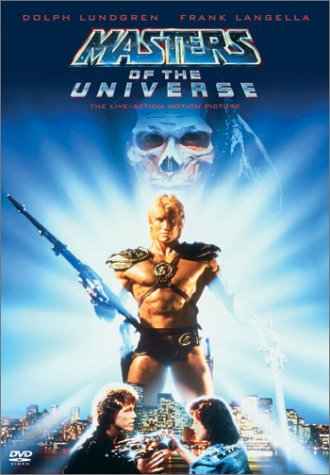 seeing Menahem
and Ted Turner walking the floors and Menahem pointing out all his
minions. At the most I might have gotten a "Good Morning" or a nod in
the elevator from either one of them. Yoram used to address us all at
Christmas time, trying to encourage us with all their great plans for
the upcoming year, but there was no interaction with the boys. seeing Menahem
and Ted Turner walking the floors and Menahem pointing out all his
minions. At the most I might have gotten a "Good Morning" or a nod in
the elevator from either one of them. Yoram used to address us all at
Christmas time, trying to encourage us with all their great plans for
the upcoming year, but there was no interaction with the boys.
G: What did your co-workers think of them?
JB: I've never worked at a place that had more
disrespect for the company officers. I guess they brought that on
themselves by always promising far more than the could deliver.
Although the nick name for Menahem and Yoram in the industry was the
"Go-Go Boys", they were referred to internally by many of the employees
as "Mo & Yo". Then, of course, there was that head of distribution,
who was known to bring "company" to his office at lunchtime for a
quickie or would send his secretary to chase down a particularly good
looking woman who passed by his office in order to get her name and
number. These guys generated their own disrespect.
G: Since Cannon wasn't exactly one of the major
studios, how did they choose what movies to make and market with their
more limited resources and funds?
JB: Those were strictly upper echelon decisions.
They had a pretty good line of credit so they could finance films. They
believed they could always make
money on a Chuck Norris or Charles Bronson movie and they convinced
their
backers that was the case. However, they had a reputation around town
for
not paying their bills and had to do a lot of business on a cash up
front
basis. I know that Both Menahem and Yoram loved movies and wanted to do
classy projects, but their taste seemed quite odd. For every Othello
they
made, there was a Roman Polanski's Pirates they'd pick
up. Everything seemed to be just a little behind the times...they made
Masters Of The Universe years after the popularity of the toy
line had died. They had huge sets
constructed for a version of Journey To The Center Of The Earth,
but it was never filmed. They had the rights to Spiderman,
but never actually made a
movie with the character. There were a lot of strange decisions made.
[Note: Few people know this, but Journey
To The Center Of The Earth was finished... sort of. The
movie was pieced together with a quick shoot on the Alien From
L.A. set and stock footage (including clips from The
Delta Force!) and barely released on video. The finished
results were so bad, Golan and Globus removed their names from the
credits.]
G: Can you tell us any interesting stories about
Cannon's stock players
(which included Chuck Norris, Charles Bronson, and Michael Dudikoff)?
JB: The only story I know of came to me second
hand. 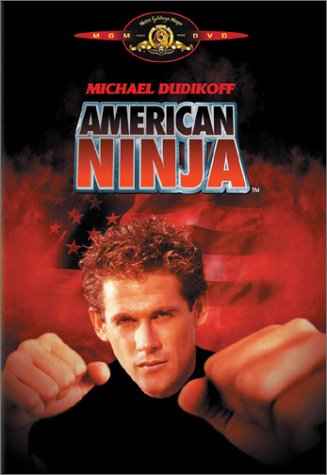 On a new receptionist's first
day, there was a phone call. The caller identified himself as Charlie
and wanted to talk to Menahem, the receptionist put him on hold. She
left him on hold for a few seconds too long and when she got back to
him he ranted at her, "Do you know who I am? I'm Charles Bronson!" That
was also that girl's last day on the job. Mr. Bronson saw to it. On a new receptionist's first
day, there was a phone call. The caller identified himself as Charlie
and wanted to talk to Menahem, the receptionist put him on hold. She
left him on hold for a few seconds too long and when she got back to
him he ranted at her, "Do you know who I am? I'm Charles Bronson!" That
was also that girl's last day on the job. Mr. Bronson saw to it.
G: Before you arrived, director Tobe Hooper had
been signed up by Cannon and was their great hope. Though reportedly
after Lifeforce and Invaders From
Mars bombed greatly, things were not going well between
Hooper and Cannon even before The Texas Chainsaw Massacre 2
started filming. What do you know about the flack going on behind the
scenes?
JB: I wasn't privy to any of this stuff. But
doesn't it seem odd to make a movie, that you eventually plan to sell
to TV, where the main character walks around totally nude for most of
the story?
G: Was the attitude of many of the executives at
Cannon that they didn't
really care if the movie was bad, that it would end up making money
after a world-wide release?
JB: I don't think they actually knew that most of
these movies were bad. They
felt there was something going for them, either the stars (Stallone in Cobra
and Over The Top, Chuck Norris and Charles Bronson in
everything else) or
the genre (Invaders from Mars, Masters of the
Universe, Invasion USA) or the veneer of class
brought on by those associated with the films (John
Frankenheimer for 52 Pick Up or Placido Domingo in Othello).
My favorite
quote from Menahem came whenever he was asked how he thought a picture
would do at the box office, "Hundred Million dollars!" was his stock
answer, no matter what the movie.
G: Obviously Cannon overspent on
film production. While working there, did you see any examples of
extravagant money-wasting in the inner workings of the company?
JB: The most obvious was the purchase of an entire
building on Wilshire Bl. in
Beverly Hills. The boys had great offices and high security (just in
case of
terrorist attacks). They lined the roof of the building with billboards
for their current films which made it look like a giant video store. I
really didn't notice anything else, the sure weren't over spending on
my salary.
G: When you left Cannon in 1987, at the time did
you feel you were getting out of a sinking ship just in time?
JB: Yes. I saw the writing on the wall and wanted
to get out while the getting
was good. I couldn't stand another bout of unemployment.
G: Cannon wasn't your last experience with
Menahem Golan. You got involved with him again when you helped out with
his lambada epic, The Forbidden Dance. You must
have some interesting tales about this... uh... interesting movie...
JB: Now this one I know something about. After
Menahem left Cannon he formed his own company, 21st Century Productions
and he called upon the company I worked for, Design Projects Inc. to do
his advertising campaigns. This was also the company that had produced
Demonwarp and by the time
we added Menahem to our client list we had also made Sight
Unseen with Susan Blakely and Delta Heat with
Lance Henricksen and Anthony Edwards. So, when the Lambada craze hit,
Menahem contacted my boss, Rick Albert to produce a film to capitalize
on it.
It 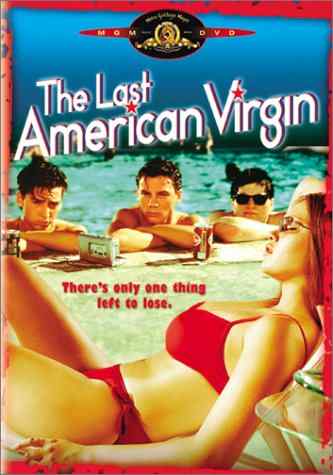 became urgent
when the word got out that Yoram was also going to produce a Lambada
film. The stories about this one are true, Rick contacted the
screenwriters from Sight Unseen, Roy Langston and John
Platt, and in the car on their way to Menahem's office they concocted a
story line for the film to pitch. From that point in late December
things were fast and furious and the film was shot, scored and edited
and in theatres by March. Rick used Greydon Clark as Director because
he had done Sight Unseen and he had also been a Design
Projects client in the past. All the casting and editing was done in a
vacant office next door to our DPI offices and our editor, Rob Edwards,
got daily visits from Menahem. Menahem's best comment on the editing
involved a shot where Rob cut to a guy as he stood up from a chair.
Menahem told him, "Never cut to the balls!" Refering to the shot of the
guy's crotch as he stood. I never understood his reasoning, but those
words should be immortal in film history. Once again, as Menahem was
going to observe the shooting of the climactic dance contest scene at a
small studio in the San Fernando Valley, he was asked by a reporter how
he thought this Lambada movie would do. His answer was inevitable:
"Hundred Million Dollars!" Of course he was mistaken. became urgent
when the word got out that Yoram was also going to produce a Lambada
film. The stories about this one are true, Rick contacted the
screenwriters from Sight Unseen, Roy Langston and John
Platt, and in the car on their way to Menahem's office they concocted a
story line for the film to pitch. From that point in late December
things were fast and furious and the film was shot, scored and edited
and in theatres by March. Rick used Greydon Clark as Director because
he had done Sight Unseen and he had also been a Design
Projects client in the past. All the casting and editing was done in a
vacant office next door to our DPI offices and our editor, Rob Edwards,
got daily visits from Menahem. Menahem's best comment on the editing
involved a shot where Rob cut to a guy as he stood up from a chair.
Menahem told him, "Never cut to the balls!" Refering to the shot of the
guy's crotch as he stood. I never understood his reasoning, but those
words should be immortal in film history. Once again, as Menahem was
going to observe the shooting of the climactic dance contest scene at a
small studio in the San Fernando Valley, he was asked by a reporter how
he thought this Lambada movie would do. His answer was inevitable:
"Hundred Million Dollars!" Of course he was mistaken.
G: Would you ever, under any
circumstances, work with Golan or Globus again?
JB: Only on a limited basis and if they paid
upfront.
G: What would you advise anyone who is
considering working with them on a new project?
JB: Get your money in advance, in cash if possible.
If they give you a check,
cash it quick, preferably before you start working.
G: Looking back at your days at
Cannon years later, what do you have to say about your experience there?
JB: It's a good thing to look back on. It was
pretty miserable being there
mainly because my desk was located in an open area next to the office
of the
head of distribution which made me a target of his anger and pet
projects.
I'm glad I had the experience and some of it was fun, but I sure
wouldn't do
it again, unless I was desperate.
My deepest appreciation to Jim for this
interview!
|





